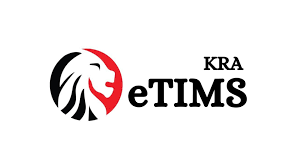In the wake of escalating environmental concerns and the urgent need to address climate change, sustainable practices have taken centre stage across industries worldwide. Organizations are increasingly recognizing the importance of environmental and social responsibility. As a result, sustainable auditing has emerged as a vital tool for assessing and improving an organization’s sustainability performance. In this blog, we will delve into the concept of sustainable auditing, explore its significance, provide real-world examples, and highlight its role in shaping a sustainable future.
Understanding Sustainable Auditing:
Sustainable auditing goes beyond conventional financial audits by encompassing a comprehensive evaluation of an organization’s environmental, social, and governance (ESG) practices. It involves an in-depth examination of the organization’s commitment to sustainable development, environmental stewardship, social equity, and ethical governance. By scrutinizing key performance indicators and sustainability metrics, sustainable audits enable organizations to identify areas for improvement, set targets, and track progress towards their sustainability goals. Sustainable Auditing plays a pivotal role in driving positive change by:
Assessing Environmental Impact:
Sustainable audits provide a systematic evaluation of an organization’s environmental performance. This includes analysing energy consumption, greenhouse gas emissions, waste management practices, and water usage. For instance, a manufacturing company might conduct a sustainable audit to identify energy-intensive processes, leading to the adoption of energy-efficient technologies and renewable energy sources. By quantifying environmental impact and identifying mitigation strategies, organizations can reduce their carbon footprint and minimize their ecological footprint.
Promoting Social Responsibility: Sustainable audits evaluate an organization’s social impact and commitment to social responsibility. This involves examining labour practices, supply chain management, community engagement, diversity and inclusion initiatives, and adherence to human rights standards. For example, a clothing retailer might conduct a sustainable audit to ensure ethical sourcing practices, fair treatment of workers, and safe working conditions in their supply chain. By identifying and rectifying social vulnerabilities, organizations can foster inclusive and responsible practices, positively impacting both internal and external stakeholders.
Enhancing Governance and Ethical Practices:
Sustainable audits focus on assessing an organization’s governance structure, internal controls, risk management processes, and ethical conduct. This helps ensure transparency, accountability, and compliance with applicable laws and regulations. By conducting regular sustainable audits, organizations can identify gaps in governance practices and implement measures to mitigate risks associated with corruption, bribery, and unethical behaviour. This proactive approach strengthens organizational integrity and builds trust with stakeholders.
Real-world Examples of Sustainable Auditing:
Apple Inc.: Apple conducts comprehensive sustainable audits of its supply chain partners to ensure compliance with environmental and social standards. By assessing factors such as energy efficiency, greenhouse gas emissions, and labour practices, Apple promotes responsible manufacturing and sourcing practices throughout its supply chain.
Maersk: Maersk, a global shipping company, conducts sustainable audits to assess its vessels’ environmental impact, fuel efficiency, and emissions management. By continuously monitoring and optimizing their fleet’s performance, Maersk aims to reduce its carbon footprint and contribute to a more sustainable shipping industry.
The Future of Sustainable Auditing:
As sustainability continues to gain prominence, the future of sustainable auditing holds tremendous potential for further progress. Advancements in technology, data analytics, and automation will facilitate more robust and efficient auditing processes. For instance, the integration of artificial intelligence and machine learning can enhance data analysis capabilities, enabling auditors to identify patterns, detect anomalies, and gain deeper insights into sustainability performance.
Moreover, emerging frameworks and standards, such as the Global Reporting Initiative and the Sustainability Accounting Standards Board, provide guidelines for organizations to report and disclose their sustainability performance accurately. Sustainable audits aligned with these frameworks will enable organizations to benchmark their performance, enhance comparability, and foster transparency across industries.
Conclusion:
Sustainable auditing serves as a vital mechanism for organizations to align their operations with sustainable development goals and foster a greener future. By conducting thorough assessments of environmental impact, social responsibility, and governance practices, organizations can identify areas for improvement, implement impactful changes, and monitor progress towards their sustainability objectives. Real-world examples demonstrate the transformative power of sustainable audits in driving positive change and encouraging responsible business practices. As sustainability becomes increasingly integral to organizational success, embracing sustainable auditing is not only an ethical imperative but also a strategic advantage. By integrating sustainability into core business practices and decision-making, organizations can contribute to a more sustainable and prosperous future for generations to come.














